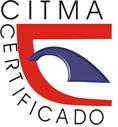IA-Net Connective Learning Taxonomy: A Proposal for Artificial Intelligence-Based Networked Education
DOI:
https://doi.org/10.5281/zenodo.10429359Keywords:
Taxonomy, Connectivism, Artificial intelligence, Digital competencies, Disruptive educationAbstract
In the current context of abundant information and the increasing significance of interconnectedness and collaboration, new forms of teaching and learning are necessitated. Connectivism is a theory positing that learning occurs through connections among individuals, ideas, and technologies, and the ability to establish and manage these connections is pivotal. This paper proposes a novel IA-Net Connective Learning Taxonomy with eight levels that focus on specific skills required for connectivist learning, including cognitive skills, knowledge acquisition, identification, communication, collaboration, creativity, exploration, analysis, application, development, evaluation, and design. This taxonomy is grounded in artificial intelligence and network principles and distinguishes itself from others by its emphasis on connectivity and collaboration. It proves valuable for educational planning and learning assessment in the digital era. It constitutes a significant contribution to education in an increasingly interconnected and collaborative world, assisting educators and students in cultivating essential skills for connectivist learning in the 21st century.
Downloads
Published
Issue
Section
License

This work is licensed under a Creative Commons Attribution-NonCommercial 4.0 International License.
















